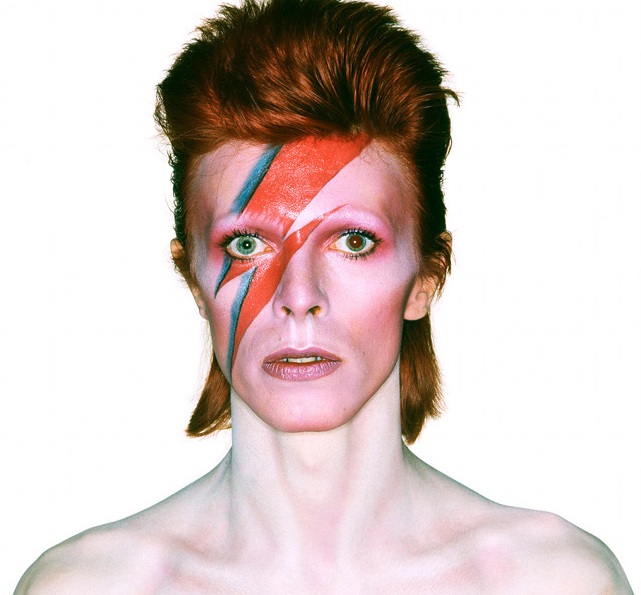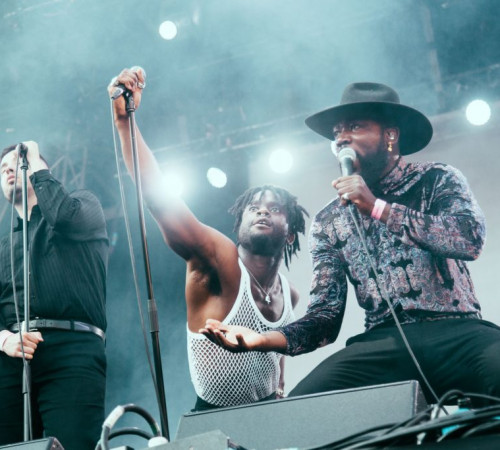
WHEN surveying all of the incredible music, trends, styles and concepts that he’s left in his wake, it’s hard to imagine the last 50 years of culture without David Bowie’s presence.
An innovator, trailblazer and a renaissance man, the man born on this very day 69 years ago is synonymous with inciting change within the industry.
David Robert Jones may have grown from humble beginnings in Brixton but Bowie almost seems like an entirely different entity, as though he’d simply been sent to this planet with a wealth of advanced knowledge and the intention to enlighten us all.
Of course this was not the case, Bowie’s musical career arguably got off to a rocky and tempestuous start, with very little critical acclaim for the neo folk sound that defined the early part of his career.
The iconic title track from his 1970 LP ‘The Man Who Sold The World’ didn’t set the world alight upon release in the same fashion that Kurt Cobain’s reinterpretation of the track would decades later and Bowie soon found himself without a record contract; a baffling concept in modern times.
The tide was truly; yet not seismically, changed with 1971’s Hunky Dory, an album that has aged remarkably and typifies the panache with which Bowie could assume any musical identity he deemed fit with startling ease. Its fruitful recording sessions (which were undertaken whilst without any guarantee that its contents would ever be released) spawned tracks which remain among the finest in his repertoire, with ‘Oh You Pretty Things’, ‘Life On Mars?’ the charismatic rock ‘n’ roll of ‘Queen Bitch’, the hero worship of ‘Song For Bob Dylan’ and the seminal ‘Changes’ causing many to reinterpret their recipe for success in accordance with the sterling example set by the youthful songwriter.
It must have felt jarring to those very same writers and tastemakers that once wrote him off and besmirched his name to be singing his praises in little over a year from their initial evaluations, a trend which would continue from there on out for the foreseeable future.
Despite the fact that ‘David Bowie’ wasn’t yet a household name, the ambitious artist would soon renounce his moniker in favour of an entirely new title.
Indisputably one of the most important musical moments of the 70’s, Bowie metamorphosed into an androgynous, futuristic, brazen and downright revolutionary character that we all know today as Ziggy Stardust.
Confrontational in its zaniness, this identity was so alien from anything that’d went before in terms of presentation, showmanship and ideology that it enabled him to repackage the very identity of the rock star.
A cultural rebuttal to the homophobia that was all around him, Bowie’s re-appropriation of women’s clothing and flamboyant style led the way for many who’d follow, influencing everyone from The New York Dolls to Morrissey and The Cure to embrace the most extroverted sides of their personality and place them at the forefront of their public personas.
It wasn’t merely his attire that sent shockwaves through the industry, with the contents of the subsequent Ziggy Stardust And The Spiders From Mars record informing much of the glam rock aesthetic that would be prevalent throughout the decade.
The doom-mongering of ‘Five Years’, the timeless rock ‘n’ roll classics such as ‘Moonage Day Dream’, ‘Hang On To Yourself’ ‘Sufragette City’ and ‘Ziggy Stardust’, it’s impossible to imagine what contemporary music would’ve sounded like if Bowie had never attained another record contract and left his world-conquering aspirations behind.
The partnership formed between Bowie and Spiders From Mars era guitarist Mick Ronson was pivotal to his progression as an artist, providing him a kindred spirit that astutely understood the vision which he was striving for and embarked upon the journey with him.
Recorded in between touring commitments in the US, Aladdin Sane; an album which served as an extension of the Ziggy character after experiening fame beyond his wildest dreams, was released and cemented him as a star that transcended music and had ascended to the rank of cultural icon.
Bowie had done it, he’d successfully reinvented himself and had taken the world by storm, one electrifying show at a time. What did he do next you ask? He of course quickly retired the character with one final send off at London’s Hammersmith Odeon on the 3rd July 1973, never once reprising the role since.
This is where he’s different from almost any other artist before or since, he’s not content with mere success, Bowie won’t compromise his vision in order to appease fans, critics or even himself.
The years that followed have seen him repeat the process again and again, ranging from the ‘plastic soul’ days of ‘Fame’ and ‘Young Americans ‘ et al to his storied ‘Berlin’ phase; an era personified by reckless abandon, untold opulence and three classic albums (two produced by Brian Eno) that forced fans to abandon everything they knew about the historic artist and come to terms with the fact that he’d defied convention once again.
Dabblings with everything from synth pop to new wave and even techno would follow over the course of his career but Bowie’s ability to evolve remains unrivaled.
This brings us to today, his 69th birthday and a day which marks the release of his now 28th studio album , a record which, while we’ve not had time to fully digest as of yet, is laden with stunning and vivid concepts, wonderful dabblings with jazz and that revolutionary spirit which has guided his every action since the outset of his career.
Despite approaching the swansong of his career, it’s not in any way preposterous to imagine that in years to come there’ll be budding musicians who drop the needle on his latest record and find a whole new world of possibility that they’d never imagined beforehand.
On behalf of the music world, we say thank you and happy birthday.








